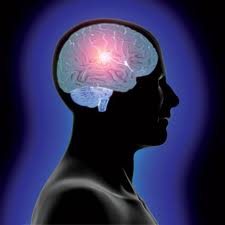How our brain makes predictions everyday
 London, Aug 24 : Researchers at the Washington University in St Louis
London, Aug 24 : Researchers at the Washington University in St Louis
have explained how people sometime could predict what’s going to happen
before it does, particularly in day- to-day activities.
People subconsciously make thousands of tiny predictions each day,
whether it’s contemplating when a bus will arrive, who is knocking on
the door or if a dropped glass will break.
And the scientists have revealed how the brain is such a surprisingly
accurate fortune-teller, but only when it comes to mundane events.
They focused on the mid-brain dopamine system (MDS), which provides
signals to the rest of the brain when unexpected events occur.
Using functional MRI (fMRI), they found that this system encodes
prediction error when viewers are forced to choose what will happen next
in a video of an everyday event.
They found that between 80 and 90 per cent of viewer predictions were correct, depending on when the footage was stopped.
Lead researcher Jeffrey Zacks said predicting the near future is vital
in guiding behaviour and is a key component of theories of perception,
language processing and learning.
The research will also help those in the early stages of neurological
diseases such as schizophrenia, Alzheimer’s and Parkinson’s, Professor
Zacks said.
In the functional MRI experiment, the researchers saw significant
activity in several mid-brain regions, among them the substantia nigra –
‘ground zero for the dopamine signalling system,’ and in a set of
nuclei called the striatum.
The substantia nigra is the part of the brain most affected by
Parkinson’s disease, and is important for controlling movement and
making adaptive decisions.
Brain activity in the experiment was revealed by fMRI at two critical
points - when subjects tried to make their choice, and immediately after
feedback on whether their answers were correct or incorrect.
“When we watch everyday activity unfold around us, we make predictions
about what will happen a few seconds out. Most of the time, our
predictions are right,” the Daily Mail quoted Professor Zacks as saying.
“Successful predictions are associated with the subjective experience of a smooth stream of consciousness.
“But a few times a minute, our predictions come out wrong and then we
perceive a break in the stream of consciousness, accompanied by an
uptick in activity of primitive parts of the brain involved with the MDS
that regulate attention and adaptation to unpredicted changes,” he
added.
The research has been published in the Journal Of Cognitive Neuroscience. (ANI)